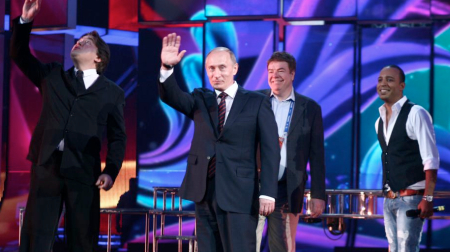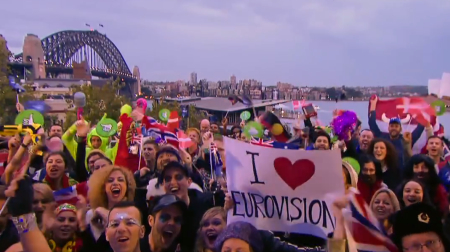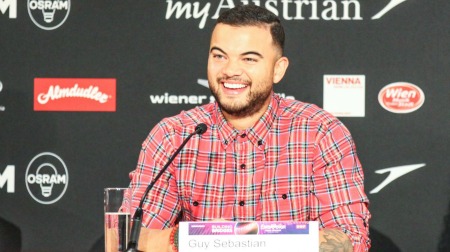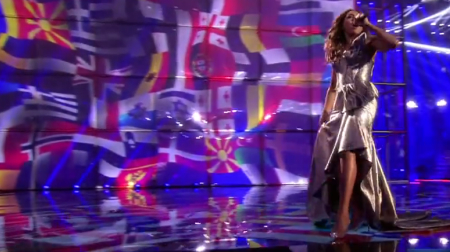Seventeen countries are now confirmed to sing at this year’s Junior Eurovision Song Contest, including Australia. Following the controversial invite handed to Australia for Vienna 2015, the long-standing Friend of the Song Contest is getting to send another singer to take on the Eurovision challenge. Sharleen Wright looks at what we know, what we know we don’t know, and what we don’t know that that we should know.
With six weeks to go until Bulgaria hosts this year’s Junior Eurovision Song Contest, the on-season is in full swing. This week the Heads of Delegation, the Producers, and the EBU team led by Executive Supervisor Vladislav Yakovlev will meet in Sofia to submit their entries, discuss the staging and run through the programme planned from the start of rehearsals and the opening parties, to the day trips, excursions, and the televised Grand Final. But more importantly, after playing with a poker face for some months Yakovlev has finally shown us his trump card, bringing his hand to a total of 17 countries for Junior Eurovision with the inclusion of Australia.

Not that Vlad, another Vlad…
What We Do Know We Know
Australia was formally invited to the Junior Eurovision Song Contest earlier this year by the EBU. Associate EBU member SBS in Australia has been screening the Junior Song Contest since its inception in 2003, although on most occasions it was slotted into a Christmas Day / New Year holiday daytime position when it would be anticipated that most of the target age-group would be watching.
Over the past few years as Australia’s role within the Song Contest has grown, the timeslot had been shifted to screen Junior Eurovision closer to the original airdate, including when it was screened from Malta last year on the Sunday evening after the Contest. Scheduling that matched the prime time screening of Adult Eurovision in May 2015.
With Australia now competing, SBS will be screening Junior Eurovision live for the first time at 4.30am Sunday morning (Eastern Daylight Savings, Sydney/Melbourne time). Unlike its older sibling, there is precedence to participate but choose not to screen it live (as Slovenia did just this in 2014), however the broadcaster has gone against what would have been a reasonable and very understandable path to go for a delay.
Why? SBS will already know the potential viewing figures given data from previous years; the fact is that this will be less than the volume of normal Eurovision fans because many simply do not watch Junior. Add in the factor it is ‘the kids contest’ where the target audience is unlikely to be awake in that early timeslot (or crawling back in from a nightclub), and then cut the audience numbers again because many fans won’t wake up that early.
Nevertheless, SBS has chosen to go live. This is a revelation, and a clear demonstration of SBS’ relationship with the Contest, and a willingness to take the entire ‘Brand Eurovision’ seriously.

SBS Australia and Eurovision (image: SBS PR)
However, unlike this years’ Adult Eurvision, it will not be open to live televoting for Australia. Whilst no formal statement on why the decision has been made to not have 50/50 voting instead going straight for the hundred percent jury vote, we would assume this is down to a number of factors; financial, as televoting lines cost money to operate; the sheer logistics of many summer timezones across Australia at this time of year; and the number of viewers estimated to watch the Contest during the voting window (see above).
It seems only right to establish how voting should run early on for the nation.
What We Know We Don’t Know
The biggest question left answered in regards to Australia’s participation for now is, who will be singing and what song will represent us? There is not long to wait, as the official announcement from broadcaster SBS will take place this Friday at the Heads of Delegation meeting. Until then lets be dutiful fans and hazard a guess or two.
Clearly this decision has been made internally, as until today there was no public call for entries or artists to submit. As there are limited young artistic paths to selection in Australia, we would expect either an approach through a talent school, or using last years’ The Voice Kids’ show. It is highly unlikely that younger artists from this year’s ‘X Factor’ contest (which features Guy Sebastian as one of the judges) will be competing, as they would still be under contract to Channel 7 as Junior Eurovision takes place.

Guy Sebastian from Australia claims he sounds sexier when he’s ill. He may find himself hoping that Europe agrees…
Photo: Eurovision.tv
Despite the previous clear relationship between SBS’s representatives on the competitive stage and artists signed to Sony (be it at the ABU Song Festival, or with Jessica Mauboy and Guy Sebastian’s participation at Eurovision), I don’t believe that it is specifically that path a Junior Eurovision entry would be found. A look at the current Sony roster does not reveal anyone under sixteen at this time.
On the flipside, ‘The Voice’ brand worldwide (including Australia) does have ties to Universal Music, the record company that also releases the Eurovision compilations each year. Universal would have access to not only the winner of The Voice Kids’ contest, but all six of the finalists who featured on the Australian album release from the show and toured under contract.
So this opens it up. An approach to select a complete unknown for Australia through a pool of young performers (such as the well-known star-producing Johnny Young Talent School, which gave us the likes of Tina Arena and Danni Minogue), or someone proven to be able to perform on TV already and also sing to a large audience live (with record company backing)? Do you go for the 11-year winner Alexa, or perhaps a more mature runner-up/contestant?
As for the song, that is even more of a mystery. SBS has revealed that the co-writer is one of the ‘Australia’s greatest’. The broadcaster has indicated at a recent EBU conference that if Australia were to compete again, SBS would ensure that the entry went with someone who is even more known than the previous selection of Guy Sebastian.
That might be in respect to the Adult Contest, but this is a platform under the same big brand, so we think this showcase of a big name could still stand… Peering into a glass ball (or a quick check down our wish list) with ‘The Voice Kids’ tie-in mind and her recent hit song release making waves in Europe, wouldn’t Delta Goodrem be lovely?
What We Don’t Know Is Australia’s Future At Eurovision
Interpreting this announcement, it’s clear that the European Broadcasting Union appreciate Australia’s continuing support of the Eurovision Song Contest. Australia’s entry to Vienna 2015 was pitched to the audience as a one-off due to the 60th Edition celebrations, but there is no such milestone for Junior Eurovision, no such pomp and ceremony, no big number to cheer.
Whilst the Australian participation does take the Junior Eurovision Song Contest to its highest level of countries since 2004, there is no indication that Junior Eurovision simply invited Australia simply to make up the numbers. Since 2013, there has been renewed interest in the younger Contest clearly tied to the new Executive Supervisors’ enthusiasm, and strengthened by what was a historical win by Malta and its excellent hosting last year. No longer is Junior Eurovision the domain of young talented kids mainly from the East performing in a studio for other kids to vote; the Contest has moved into bigger venues with higher production values, the artists participating and the format has skewed to older teenagers and family viewing, new countries such as Ireland have joined, other countries have attended and observed with plans to participate in the future, and there is now an established path of Junior entries going on to represent their countries later at the Adult Contest.

SBS Australia and Eurovision (image: SBS PR)
Despite whatever reservations one may hold about Australia being a part of the Contest family in a more full-time role (and my own personal views have been previously reported here on Insight), it is clear that the EBU see Australia as a valuable partner, and SBS take their participant responsibilities very seriously.
I honestly believe and maintain that until there is an official announcement, Australia’s once-off participation at Eurovision itself stands – Ewan disagrees, he’s waiting for the other shoe to drop. Nevertheless to read deeper into this new Junior participation revelation from today, you have to say that this entry is the broadcaster’s best way to demonstrate it is here to contribute, and do it in a manner that not only makes its home nation proud but in a way that the whole of Europe will notice and potentially reward for many years, and many Contests, to come.









It’s occurred to me that Australia is a relatively wealthy country with the resources and motivation to enter good songs with good staging. That in itself must be very appealing to the EBU. To have Australia join permanently would be like getting another Norway or Denmark, not another Moldova or San Marino.
Very good point Robyn, and they’re not coming in with a ‘know it all attitude’ as well… very much in ‘pay attention’ mode
In the annoucement by the EBU regarding Australia’s participation atd JESC, there is no single mention that this is “one-off” and the impression one could get is actually quite the opposite. And the article rightfully observes the fact that there is no special landmark regarding JESC like an anniversary. Let me just stress out some interestimg quatations from their press release:
“With #discover as the slogan for this year’s contest, we are also thrilled to welcome newcomers Ireland and Australia”
Both Australia and Ireland are described just as…newcomers, so the article does not imply that there is something extraordinary with Australia’s participation – it’s just the same as the Ireland’s one.
“The votes of Australia FOR THIS YEAR will be decided 100% by the jury.”
That “for this year” is quite interestimg as well, as it implies that this year there would be only a jury vote, but the situation may not be the same in the future. If it was meant as just one-off exceptional participation, this expression is pointless, but they’ve put it in their announcement.
The whole background meaning of that announcement is that Australia is no longer different case compared to let’s say…Ireland (as mentioned in the press release itself) and that participation at JESC maybe will be the next step in the inclusion of Australia as permanent member of Eurovision.
Mils, I think you have some excellent points when analysing the EBU press release.
Reading into the votes for this year for Australia, you could interpret it like that, or the fact that Australia is only committed to being in JESC this year, or indeed that there might be a new method of collecting votes next year. We already know that there was an attempt to run an online voting system last year but it was overwhelmed. With enough time and testing, perhaps next year fans – and indeed Australian fans – could use that for their voting?
They don’t belong in any Eurovision event. The whole idea is ridiculous – a live broadcast at 5 in the morning -whose watching?
They bring no unique sound to the contest. Azerbaijan and Israel aren’t in Europe either, but I hear a distinct cultural sound from both countries from time to time.
Yes, the majority comes from Europe but so too does Canada.